Is “truely” the correct spelling? Contrary to what some people may believe, “truely” is not the correct spelling for the adverbial term “true.”
Also, “truely” is not an alternative spelling, like “spelled” and “spelt” in the British English language.
It may seem like the correct spelling because you add an “-ly” to the root word “true.”
But “truely” is the incorrect spelling.
Put simply, “truely” is the improper spelling of the word “truly” because it contains an extra “e.”
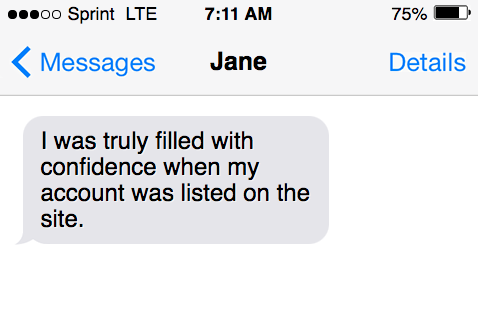
“Truly” or “truely”: what is the accepted spelling?
The only way to spell the adverbial form of “true” is “truly.”
“Truely” is a common misspelling that includes an extra “e” in the word.
In the English language, “truly” is the only accepted spelling of the word.
Still, that isn’t to say that other terms in English don’t have alternative spellings.
For example, “gray” and “grey” can be used interchangeably and are both considered the proper spelling of the term.
Other words, like “canceled” and “cancelled” are correct and the proper spelling of the term.
Remember, there is only one way to spell “truly,” and it is not with the final “e” in the proper spelling.

“Truly” or “truely” in other languages
Sometimes, there is a slight difference in the spelling of certain words between American English and British English.
Therefore, some people believe “truely” is the correct word to use when writing in British English.
However, “truely” is simply a common mistake.
Instead, “truly” is the only correct spelling, whether you are writing in British or American English.
Definition of the word “truly”
Like many words, “truly” has multiple definitions.
The most common being “in all sincerity,” often used with terms like “yours” as a complimentary close.
Another meaning of “truly” is “in agreement with fact; truthfully.”
Additionally, you can write the term to mean “without feigning or inaccuracy; indeed.”
Or, “truly” can be defined as “with the exactness of construction” and “in a proper or suitable manner.”
As you can see, the article has a lot of ways it can be used correctly.
No matter what context you use the term in, proper grammar requires it to be spelled like “truly.”
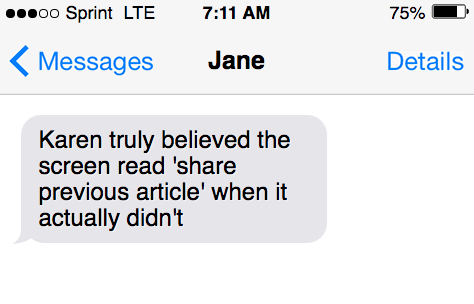
Definition of the word “truely”
There is no definition for the term “truely,” as it is a misspelling with an extra letter.
Essentially, the word does not exist, and it is not proper grammar to use it in sentences.
Instead, the correct way to spell the word is “truly.”
Occasionally, when you’re writing, there are multiple ways to spell a word by adding another letter or two.
In the case of “truly,” adding another letter is a word error.
What type of word is “truly?”
“Truly” is an example of an adverb.
Most adverbs end in an “-ly,” making it easy for writers and readers to identify them.
However, not all adverbs end in “-ly.”
For example, “fast” is one of the adverbs that doesn’t require “-ly” for its correct use.
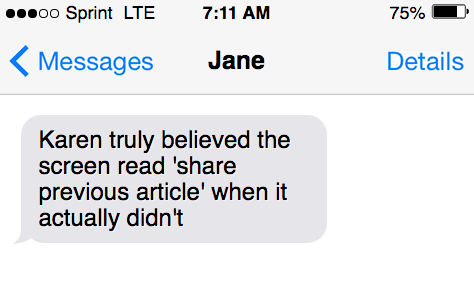
What are adverbs?
Adverbs are words that modify or describe a verb, an adjective, or another adverb.
Also, adverbs can modify or describe entire sentences in writing.
Most grammar rules demand adverbs end in “-ly.”
But some, like “fast,” look the same as their adjectives counterparts.
Some cases of adverbs used correctly include the following sentences:
“The street sign shined brightly in the darkness of the night.”
“He wrote the essay so slowly the teacher asked that he work on his writing skills.”
“The course went by quickly for Robert.”
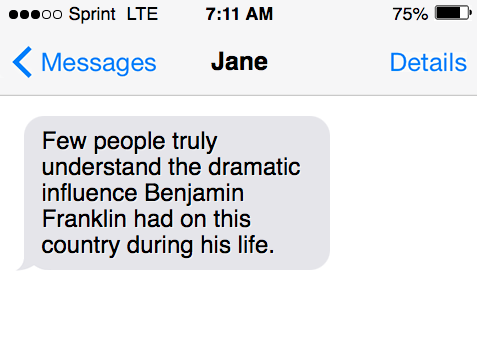
Examples of popular adverbs
As previously mentioned, many adverbs end in “-ly,” making them easy to identify in a person’s writing.
Some of the most commonly used adverbs ending in “-ly” include:
- Quickly
- Terribly
- Abruptly
Other adverbs indicate where an action occurred for the previous article in a sentence.
These adverbs of place include words like:
- Everywhere
- Inside
- Underground
Further, adverbs of time/frequency provide a sign as to where the action happened.
Some instances include terms like:
- After
- Before
- Later
There are still other ways to utilize adverbs, including intensifiers, adverbs of manner, and those that explain the extent of action.
Difference between verbs and adverbs
The primary distinguishing detail between verbs and adverbs is this:
Verbs demonstrate an action performed by a noun.
Adverbs are descriptive words that provide more information about how said action was performed.
Take the statement, “Matt played the game nicely.”
“Played” is the verb in this instance and “nicely” is adverb.
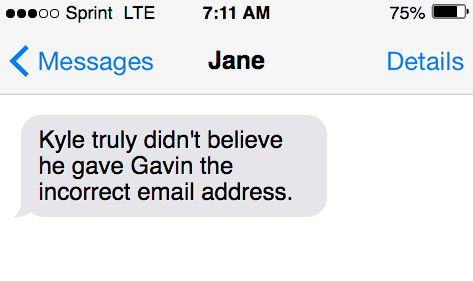
Placement of adverbs
One aspect of adverbs that makes it challenging to identify them in writing is that these terms can be placed in very different stages of a sentence.
For instance, when one of these descriptive terms modifies an entire sentence, it can be placed at the beginning, end, after certain verbs, or before certain verbs.
One trick to identifying adverbs is this: these terms are used to provide answers to the questions “when, where, and how.”
Etymology of the word “truly”
The root word of “truly” is “true.”
“True” derived from the Old English term “triewe.”
Other languages that influenced the current day spelling of “truly” included Mercian, Proto-Germanic, Dutch, Gothic, Old Norse, and Old High German.
Throughout history, the term carried a similar definition to what we know today.
When to use “truly” in a sentence
Because “truly” is an adverb, there are certain instances where one can use the word.
When modifying a verb, you can use “truly” to comment on the earnest nature of the action word in question.
For instance, take the statement “Phillip truly thought his answer was correct.”
Based on the way this sentence was constructed, the reader knows that Phillip genuinely believed he wasn’t wrong.

Synonyms for “truly”
The truth is there are several other terms you can use instead of “truly.”
For instance, you can comment “even,” “indeed,” “verily,” “nay,” or”yea” in replacement of “truly.”
However, keep in mind that every synonym can’t function the exact same way as “truly” in every sentence.
Examples of truly in writing
If you are still wondering how to use “truly” in an honest manner, use these statements as a reference:
- “Kyle truly didn’t believe he gave Gavin the incorrect email address.”
- “I truly wanted to share the next article with you but the website shut down.”
- “Few people truly understand the dramatic influence Benjamin Franklin had on this country during his life.”
- “I was truly filled with confidence when my account was listed on the site.”
- “Karen truly believed the screen read ‘share previous article’ when it actually didn’t”
- “I truly wish I could save this for you on account of you not having the skills to make your own.”
Phrases containing “truly”
Here are a couple of popular phrases that utilize the correct spelling of “truly.”
“I’ve had a truly wonderful time with you this evening.”
Or, people often sign the end of a letter with “Yours truly, [insert name].”
Why is “truly” commonly misspelled?
“Truly” is frequently written as “truely” because a majority of adverbs simply tack on an “-ly” to the base word.
For example, you would write the adverb form of “loud” as “loudly.”
Another instance is writing “god” as “godly.”
Further, “serious” changes to “seriously.”
English grammar can trick people quite easily, and this is only one of many examples.
Essentially, “truely” follows the grammar rules that other terms abide by.
However, the article changes to “truly” and not “truely.”
How to remember which word to use
It can be challenging to remember whether the term is “truely” or “truly.”
Despite that, it’s essential to remember that “truely” is not a word in Enlish, it is simply an error.
To ensure you don’t make this error, keep in mind that “truely” looks a little awkward while “truly” has a more asethically pleasing appearance.
Of course, making a point to use spellcheck while typing on a computer can ensure you lessen your spelling errors as well.
Other common adverb spelling mistakes
There are a couple of other adverbs that people commonly misspell because they don’t follow typical writing rules.
For instance, “accidentally” is frequently written as “accidentaly.”
Also, people aren’t usually aware that words like “more,” “very,” and “far” are adverbs because they do not end in “-ly.”
Sources
- Truly or Truely – Which Is Correct? – Grammarly
- ‘Canceled’ or ‘Cancelled’? One L or two? – Merriam-Webster
- Truly etymology – Online Etymology Dictionary
- Definition of truly – Merriam-Webster
- Truly or Truely: Know the Correct Spelling – Ink for all
- What Is an Adverb? – Grammarly
- The differences in British and American spelling
- Grammar 101: Verbs vs. Adverbs – Elite Editing
- triewe – Wiktionary
- Intensifiers ( very, at all ) – English Grammar Today
Inside this article
Fact checked:
Content is rigorously reviewed by a team of qualified and experienced fact checkers. Fact checkers review articles for factual accuracy, relevance, and timeliness. Learn more.
Core lessons
Glossary
- Abstract Noun
- Accusative Case
- Anecdote
- Antonym
- Active Sentence
- Adverb
- Adjective
- Allegory
- Alliteration
- Adjective Clause
- Adjective Phrase
- Ampersand
- Anastrophe
- Adverbial Clause
- Appositive Phrase
- Clause
- Compound Adjective
- Complex Sentence
- Compound Words
- Compound Predicate
- Common Noun
- Comparative Adjective
- Comparative and Superlative
- Compound Noun
- Compound Subject
- Compound Sentence
- Copular Verb
- Collective Noun
- Colloquialism
- Conciseness
- Consonance
- Conditional
- Concrete Noun
- Conjunction
- Conjugation
- Conditional Sentence
- Comma Splice
- Correlative Conjunction
- Coordinating Conjunction
- Coordinate Adjective
- Cumulative Adjective
- Dative Case
- Determiner
- Declarative Sentence
- Declarative Statement
- Direct Object Pronoun
- Direct Object
- Diction
- Diphthong
- Dangling Modifier
- Demonstrative Pronoun
- Demonstrative Adjective
- Direct Characterization
- Definite Article
- Doublespeak
- False Dilemma Fallacy
- Future Perfect Progressive
- Future Simple
- Future Perfect Continuous
- Future Perfect
- First Conditional
- Irregular Adjective
- Irregular Verb
- Imperative Sentence
- Indefinite Article
- Intransitive Verb
- Introductory Phrase
- Indefinite Pronoun
- Indirect Characterization
- Interrogative Sentence
- Intensive Pronoun
- Inanimate Object
- Indefinite Tense
- Infinitive Phrase
- Interjection
- Intensifier
- Infinitive
- Indicative Mood
- Participle
- Parallelism
- Prepositional Phrase
- Past Simple Tense
- Past Continuous Tense
- Past Perfect Tense
- Past Progressive Tense
- Present Simple Tense
- Present Perfect Tense
- Personal Pronoun
- Personification
- Persuasive Writing
- Parallel Structure
- Phrasal Verb
- Predicate Adjective
- Predicate Nominative
- Phonetic Language
- Plural Noun
- Punctuation
- Punctuation Marks
- Preposition
- Preposition of Place
- Parts of Speech
- Possessive Adjective
- Possessive Determiner
- Possessive Case
- Possessive Noun
- Proper Adjective
- Proper Noun
- Present Participle
- Prefix
- Predicate



